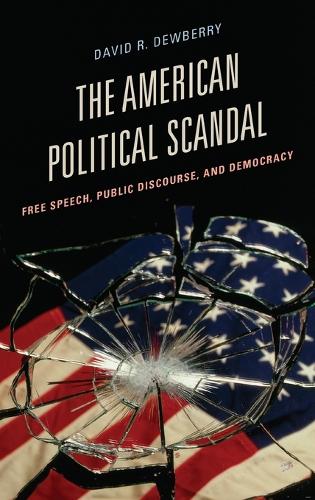
The American Political Scandal: Free Speech, Public Discourse, and Democracy
(Hardback)
Publishing Details
The American Political Scandal: Free Speech, Public Discourse, and Democracy
By (Author) David R. Dewberry
Bloomsbury Publishing PLC
Rowman & Littlefield Publishers
13th August 2015
United States
Classifications
Tertiary Education
Non Fiction
History of the Americas
320.9730904
Physical Properties
Hardback
240
Width 161mm, Height 235mm, Spine 24mm
490g
Description
In this holistic examination of political scandal in the United States, David Dewberry argues convincingly that such scandals follow a consistent narrative centered largely on media coverage and politician performance rather than the actual corruption or ethics violation committed. In making this argument, he also provides an analytical framework for understanding the patterns underlying scandals regardless of their unique political contexts. Dewberry dissects four major examplesTeapot Dome, Watergate, Iran-Contra, and Clinton/Lewinskyand explores the roles of various constituencies involved in creating, reacting to, and mediating the scandal. What is the true role of journalism within the context of scandal What persuasive techniques do politicians employ to develop and perpetuate scandals What motives and values bring scandals to a close In addition to the core cases, Dewberry incorporates briefer examples from contemporary and ongoing controversies including Anthony Weiners sexting scandal, money and sex in Congress, how cover-ups have gone digital, and Chris Christies Bridgegate. The result is a fascinating and thoughtful look at the relationships among political discourse, free speech, and democracy.
Reviews
[F]aculty who teach courses such as Politics and the Media, Political Rhetoric, or Democracy and Citizenry should examine Dewberrys book and consider whether to adopt it. * Journalism & Mass Communication Quarterly *
Dewberry applies scholarship to scandala topic that can quickly turn salacious. The result is a theoretically-driven text that is both compelling and distinctive. -- Geoffrey Peterson, University of WisconsinEau Claire
In this deep rhetorical analysis of political scandal, Dewberry makes the bold decision to separate the detailed investigation of four core case studies into common segments and presents these segments alongside each other within the various chapters. This approach highlights how often there are common stages to scandals, and allows readers to make very clear comparisons across the case studies. -- Steven Nawara, Lewis University
Author Bio
David R. Dewberry is associate professor of communication at Rider University. In addition to publishing numerous articles on rhetoric and free speech, he has served as editor of the journals First Amendment Studies and Communication Law Review.
